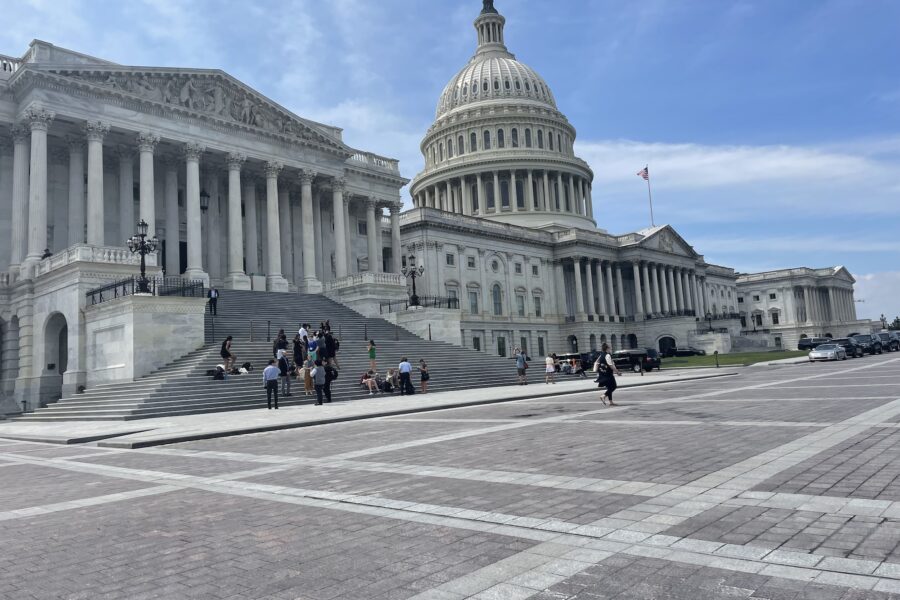
Reminder: Election Day is Tuesday, November 5, 2024.
Our elections are secure and trustworthy, but rumors, myths, and just plain misunderstandings – especially online – can make it confusing and even prevent some people from exercising their right to vote.
It’s important to stay informed about common myths and misconceptions about registering to vote. And it’s critical that you ALWAYS exercise your right to vote.
Misinformation about voting is widely spread online, including the notion that widespread fraud exists. If you’re struggling to separate fact from fiction, here’s the truth behind six common election fraud myths.
1. Some think their votes don’t matter but the real truth is every vote counts.
Sometimes, elections are decided by a single vote.
In 2017, a perfect tie in one race meant that party control of the House of Delegates in Virginia was decided by drawing a name out of a hat.
In 2018, 59 primary races and ballot initiatives in Ohio were close or settled by only one vote.
In fact, close votes are so common that most states have rules on the books for dealing with one.
Your vote could literally be the difference between an elected official chosen by the people and one chosen by cutting a deck of cards, drawing straws, or even rolling dice.
Your vote is your voice, and every vote counts.
2. False election claims focus on voter fraud but the truth about election fraud is it’s very rare.
Is there any truth to election fraud? Voter fraud is rare. One study of over a billion ballots over 14 years found only 31 credible instances of voter fraud.
In fact, the Brennan Center for Justice has determined that “it is still more likely for an American to be struck by lightning” than to commit voter fraud either through in-person voting or with mail ballots.
3. Some think only presidential elections matter but the truth is local and state elections can tremendously impact your life.
Regional and state elections impact decisions surrounding community parks, road maintenance, police, public health, and public schools. Take some time to learn about local candidates, your state’s voter registration deadlines, and local polling locations.
4. Some think once you register to vote, you’re registered for life, but the truth is there are exceptions.
Most of the time, after you have registered to vote, you won’t have to do so again.
But sometimes, your registration may change.
You must re-register if you move, change your name, or switch political parties. Depending on the state, if you are convicted of a felony without parole or ruled mentally incapacitated by a court, you may no longer be able to vote.
There have also been multiple instances in which states have inaccurately removed or suspended voters if they haven’t voted in some time.
It’s especially important to check your registration status ahead of time to avoid any unpleasant surprises on Election Day. Check your voter registration status here.
5. Some think the only way to vote is on Election Day, but the truth is you have options.
There are many options for voters to cast their vote in the election if they cannot make it to the polls on Election Day.
Many states participate in early voting. This can range from several days to one month before the general election. (See your state’s guidelines on early voting here)
If you cannot appear in person on Election Day (or your state does not allow early voting), you may qualify for an absentee ballot. While it is important to check your state’s specific rules on absentee voting, all states will mail a ballot to voters who require one.
In Texas, for example, voters can request an absentee ballot if they are 65 years or older, disabled, unable to appear at the polls, or in jail.
6. It’s a myth that mail-in ballots don’t count unless a race is close.
One of the myths about absentee voting is that mail-in ballots do not count or are not counted unless the race is close.
However, many states, including Washington, Oregon, and Colorado, vote completely by mail. Other states, such as Montana and Arizona, offer a permanent vote-by-mail option for over 70 percent of the entire state’s population.
In truth, voting via mail is one of the convenient ways of exercising what is one of the most important responsibilities you will have in your life.
Your vote is your voice. And when you vote, you help create and nurture a better society. People in your community are going to be voting. Are you going to be one of them?


